Despite how cute and cuddly they look, raccoons can be a major nuisance anywhere they are found near human habitation.
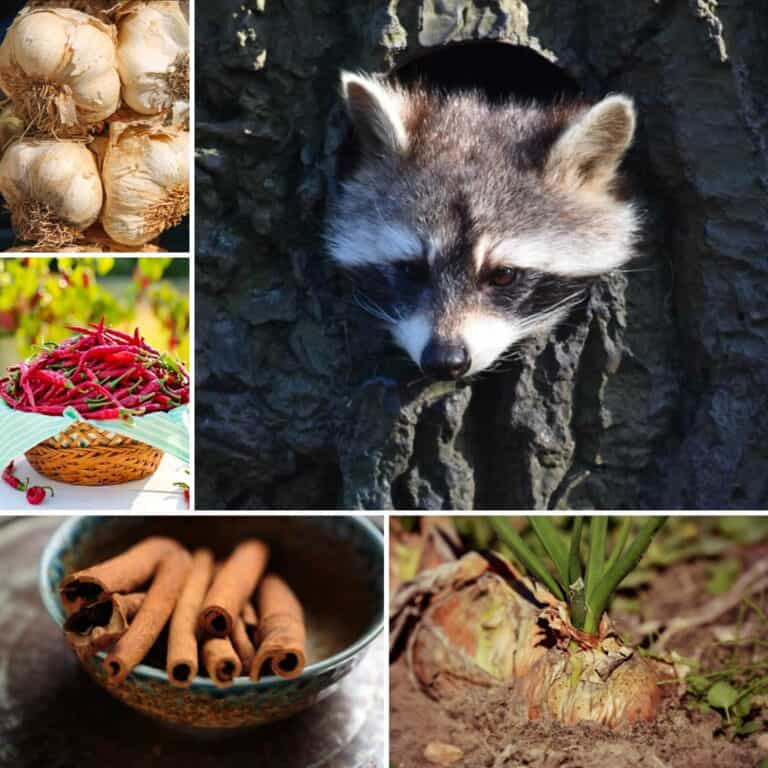
These black-masked and ring-tailed rascals raid garbage cans and gardens for food, nest in attics, poop all over the place, and generally make a nuisance of themselves.
They can also carry diseases that can harm you and your pets, so it’s important to keep them away if possible.
If you’re tired of raccoons wreaking havoc on your property but don’t yet want to resort to lethal force or foot the bill for expensive professional help, you can use a raccoon’s nose against them by employing scents.
From the pungent smell of garlic to the nasty, threatening whiff of coyote urine, we are bringing you 14 odors known to be effective at deterring raccoons from the immediate area. Grab a clothespin and let’s get to work.
Before You Go, Know How Scenting Works
We’ll get right to the list, I promise, but before we do it is essential that you understand a bit about raccoon psychology and biology so you can better understand how to evict them.
You also need to know the limitations of using scent as a deterrent; just because it is low-impact and low-effort does not mean you can set it and forget it!
But first to our adversary. When we talk about a raccoon’s sense of smell it is important to understand just how sensitive it is, at least compared to our own. In fact, a raccoon’s sense of smell is about 25 times more acute than our own!
Raccoons use their powerful noses not just to seek out food but also to locate one another and to understand markings and lurking dangers in the environment around them.
This also means that some odors that merely smell unpleasant to us can be downright intolerable or painful to a raccoon. Some things that don’t even have a smell to humans can smell quite pungent- and bad- to a raccoon.
These olfactory assailants placed near nesting sites or regularly used entrances and exits, may see raccoons depart in search of nicer places to live.
Another strategy is to bombard our entire property with objectionable smells to convince the raccoons to steer clear.
But, there is no free lunch, I am afraid. Our first hurdle is the raccoons themselves. Raccoons are infamous for their persistence and intelligence.
If there is food to be had these critters will go to great lengths and overcome significant obstacles to get it. This includes enduring an unpleasant-smelling area.
The other factor is in the odorous agent; scents simply wear out over time, losing effectiveness, and some scents only stay potent for a couple of hours.
That means you will need to be diligent when it comes to “topping up” your scent stations if you want to keep the raccoons away.
But don’t let all this deter you: laying offensive scent is effective! In fact, there is quite a bit of research that confirms it. With all this in mind, let’s move on to the list of smells known to keep raccoons away.
14 Scents That Will Keep Raccoons Away
The repellent scents listed below have been known to be effective in keeping raccoons away.
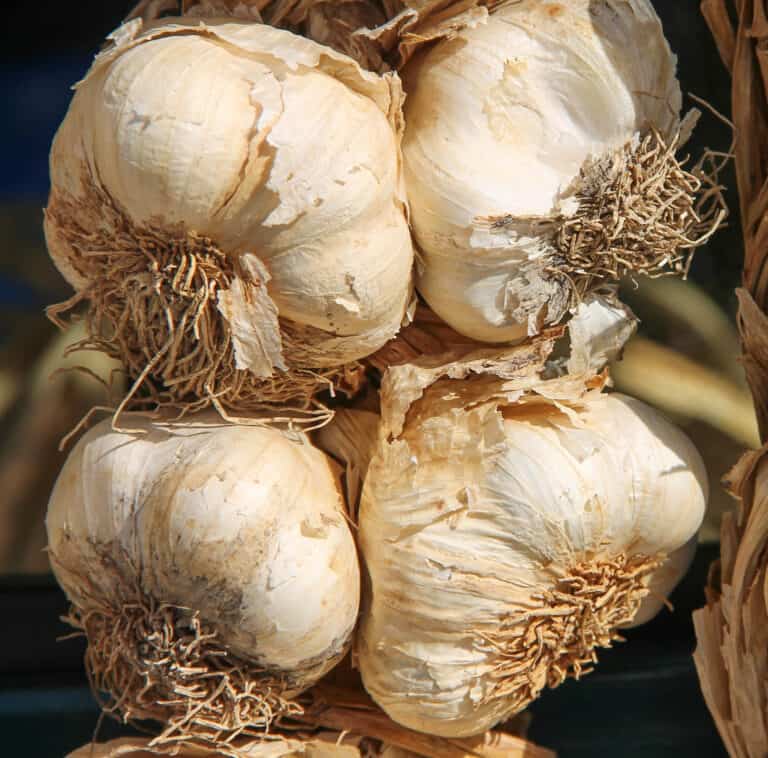
1. Garlic
Used correctly, garlic makes all of our savory foods delicious. But raccoons disagree. To them, this stuff is intolerably repulsive.
If you have a raccoon problem, placing mashed cloves of garlic around your property at strategic points may help to ward them off.
Garlic smells so pungent due to the presence of allicin, a sulfur-containing compound that is also responsible for its health benefits.
When garlic cloves are cut or crushed, an enzyme called alliinase converts alliin into allicin. That’s why garlic doesn’t really smell until you start chopping in the kitchen!
Garlic has a major advantage in that it is quite cheap, highly available, and utterly safe to use assuming you don’t have an allergy to it.
But the downside is that garlic has a relatively small “throw” (spread) and short life until it sheds those volatile compounds that make it so stinky to begin with. Once it dries out, it is done for.
So if you go this route, you need to be prepared to replenish your scent stations fairly regularly.
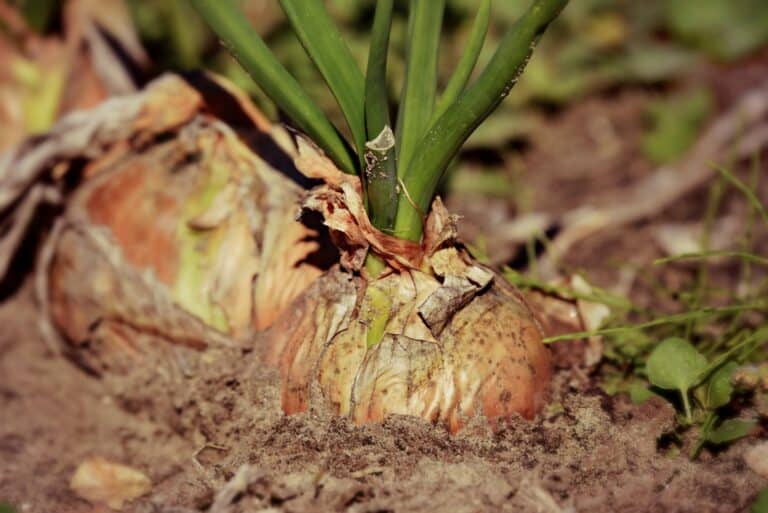
2. Onion
Onion is a close relative to garlic and is used in much the same way for our purposes. Like garlic, onions contain sulfur-based compounds that are highly repulsive to many animals, including raccoons.
In fact, onion extractives are sometimes used as an ingredient in commercial animal repellents.
If you want to use onions as a raccoon repellent, simply place chopped onions or even onion quarters in and around areas where you have seen raccoon activity.
This is a great way to shift nesting raccoons from outdoor areas in or around sheds, under decks, and so forth.
But, just like garlic, onions lack staying power. They need to be replaced frequently to remain effective and they stop working at all if they become too dry.
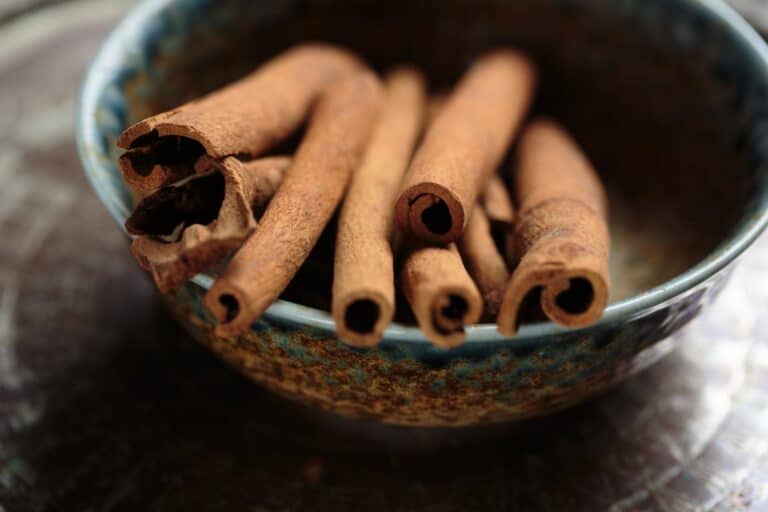
3. Cinnamon
Definitely one of the more pleasant-smelling repellants on this list, and another mainstay in the kitchen that raccoons simply cannot stand.
Cinnamon gets its alluring aroma and flavor from a compound called cinnamaldehyde.
You know that a strong dose of this stuff can just about snap your head around, so imagine how a raccoon will feel.
The best attribute of cinnamon in this role aside from its agreeable (to us) smell is its adaptability.
You can use cinnamon powder to repel raccoons by sprinkling it heavily around areas where you have seen them or would like to keep them away from them.
Potent cinnamon essential oils pack a hellacious wallop for determined raccoons or usual entry points and can also be used to make raccoon-repelling solutions for spraying on problem areas.
Compared to onions and garlic, cinnamon lasts longer but is more vulnerable to getting wet, so be mindful of replacement when it rains.

4. Black Pepper
We continue the culinary category of raccoon repellents with black pepper. A ubiquitous seasoning the world over, black pepper is beloved for its flavor and infamous for its sinus-savaging bite.
Black pepper is a known irritant thanks to a compound it contains called piperine. Piperine is also responsible for that telltale “burn” you feel when you eat or inhale black pepper, and it can do the same thing to raccoons if used correctly.
Black pepper is another totally safe option that is only minimally hazardous to pets and has the added benefit of actually irritating raccoons that come too close to investigate.
You can use ground black pepper (but not whole peppercorns) to keep raccoons out of specific areas by sprinkling them liberally on trails and around entrances, or even make sachets of the stuff to place or hang in problem areas.
Just be aware that black pepper will lose its potency steadily over time and needs to be replaced fairly regularly. Like cinnamon above, it will wash out if it rains even if it does not wash away.

cayenne peppers
5. Cayenne Pepper
Time to turn up the heat, quite literally. Cayenne pepper, usually sold in seasoning form as a powder, is a variety of chili pepper that packs a potent, fiery punch, one that makes mammals think they are burning up when ingested.
This is due to the presence of your old friend and mine, capsaicin!
Capsaicin is an irritant, plain and simple, and will cause any mammal that ingests it or contacts it to feel profound burning sensations, coughing, sneezing, and increased mucous production.
A staple ingredient in honest to goodness pepper spray, you can use cayenne powder to repel raccoons by sprinkling it around areas you want them to stay away from.
The major benefit of cayenne pepper is that it will give raccoons a pain stimulus to stay away, and much worse than black pepper.
But like cinnamon and black pepper both, cayenne will lose its efficacy if it gets wet so keep an eye on it after rainstorms or watering plants nearby, and keep in mind it can severely irritate your dog or cat, too.
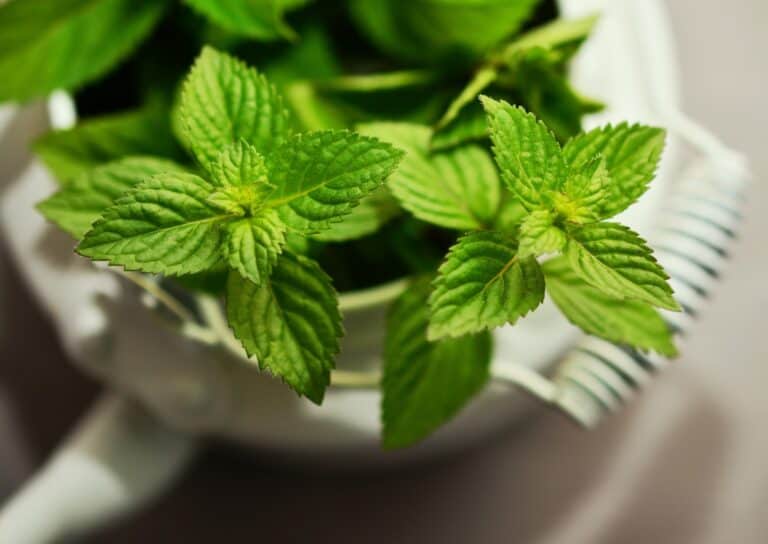
6. Peppermint
Another “hot” scent, but one that smells fresh and crisp like a frosty winter morning.
It is also a potent rodent and raccoon deterrent and an insect killer, thanks to its main active ingredient, menthol.
Menthol is found in abundance in mint plants and gives them that refreshing, cooling quality all of us know and some of us love.
But for raccoons it is a profound irritant, one that will cause them to water from their eyes, and even have trouble breathing if they get too close.
Your very best bet for employing peppermint is as an essential oil, which means you might need to spend a bit on it. Fresh leaves, crushed, may work okay but they lack the punch of concentrated stuff.
You can spritz peppermint oil around high-traffic areas, or directly in known resting or den areas.
My favorite use is soaking my trashcans in it: it keeps the bandits at bay and cuts down on offensive garbage odor!
7. Epsom Salt
Epsom salt might seem like a curious inclusion since, to humans at least, it does not have any smell. Oh, but it does to raccoons!
Quick aside, Epsom salt is not actually salt but a naturally occurring mineral compound comprised of magnesium and sulfate.
It has a long history of medicinal use, and can be beneficial to gardens and potted plants as a source of essential nutrients.
For raccoons it is yet another potential irritant that they can detect at some distance from the source.
For our use, Epsom salt is cheap enough and easy enough to broadcast that we can quite literally blanket our property our perimeter in the stuff to keep raccoons away.
You can also make a solution from it for spraying: One pound of Epsom salt diluted in two gallons of water and sprayed around the perimeter of your home or property will do wonders.
Unfortunately, this is another remedy that needs to be replaced frequently, but it is not harmful to mammals or plants in most concentrations and it is quite cheap compared to essential oils and other specialty products.
8. Naphthalene
Naphthalene is an organic compound and a hydrocarbon derivative, typically used as an insecticide. It smells abrasive and harsh, like mothballs- that’s because it is commonly used in mothballs!
When raccoons smell naphthalene, it just rocks them and makes them want to avoid the area.
You can see where this is going: repurpose those mothballs as raccoon repellent! Mothballs are cheap, readily available and easy to use, and also have the advantage of being formulated to last for a time.
But mothballs, for all their perks, have some serious drawbacks. This compound is very potent and is also quite toxic to them if ingested, so you must take care that it cannot be reached by other animals.
It also, just like the box says, kills insects dead, so take care where you place it. You would not want to wipe out helpful insects in the process.
9. Ammonia
Chemistry furnishes many solutions to problems, including the problem of animal repulsion.
Ammonia is a pungent, eye-watering gas that we use in all kinds of cleaning products It is also great at keeping raccoons away from your property because they truly cannot stand the stuff.
You can purchase bottles of concentrated ammonia at any hardware store, and it is very cheap.
Be careful with it though: it is corrosive and reacts readily with other chemicals, so always follow the instructions on the bottle and take appropriate safety precautions.
This is serious business if you are reaching for ammonia as a repellent. To use ammonia as a raccoon deterrent, simply soak some rags in it and place them around your property where a strong defense against intrusion is required.
10. Bleach
Another household and workshop mainstay for preppers, bleach is useful for raccoon deterrence since it repels them with its harsh chemical smell if used at full strength.
Bleach is something you probably already have on hand, and it is highly effective, but it comes with several shortcomings: it is corrosive, for one, so you must use great care to not damage surfaces with it.
It can easily harm other animals and plants, and lastly, it will need to be replaced very frequently- bleach only works for a few hours at most until the sodium hypochlorite dissipates and the smell is gone.
For these reasons, I like to deploy bleach around trash cans and refuse piles when needed where I can depend on it to kill germs while scaring off the thieving raccoons that broke into them.
11. Coyote Urine
Most prey animals remain highly attuned and aware of anything which might indicate the presence of a predator.
Raccoons are among such animals, and have no shortage of predators, so we can exploit their fear to our benefit by sowing a few strategic spots around our place with the excretions of their chief antagonists.
Coyotes are among the most successful and wide-ranging predators of raccoons, and their urine is a potent raccoon repellent.
You can purchase coyote urine at many outdoor stores (just be sure to check that it is fresh!) or online, and it is not too terribly expensive.
Saturate some cotton balls or rags with the stuff and place them around your property in likely places of intrusion, or spray it on in the same places.
Be warned, this stuff smells rank!
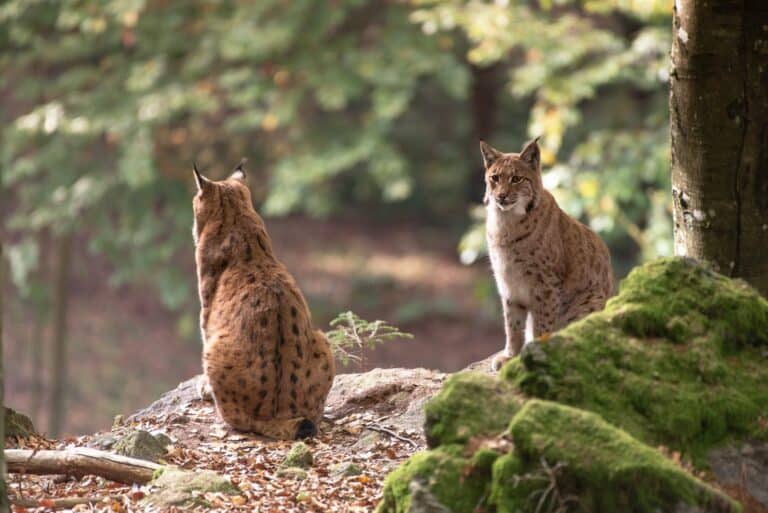
12. Bobcat Urine
We use bobcat urine for raccoon deterrence in the same way to coyote urine, but it is not as easily acquired and far more expensive. However, it might be more effective, especially in areas where bobcats are common killers of raccoons.
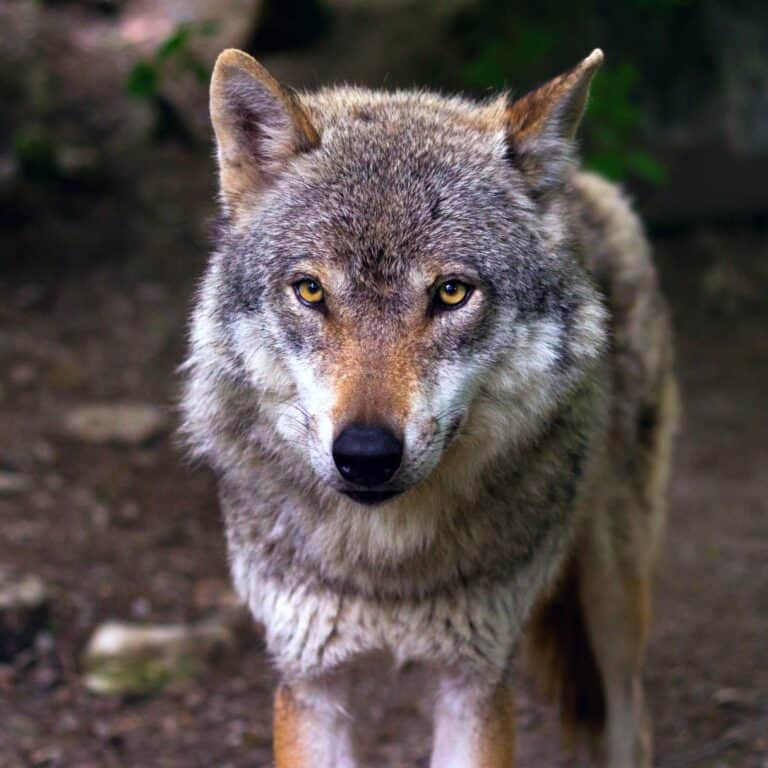
13. Wolf Urine
You know the drill: If you live anywhere wolves are common you might try their urine for repelling raccoons.
As with coyotes and bobcats, this will only work if the raccoons in your area have a healthy fear of wolves, though most will avoid canine urine instinctively.
14. Boar Scent
No, I am not talking about wild pigs. Male raccoons are called boars, and their scent is a potent repellent for female raccoons and especially ones with babies.
Sound counterintuitive? It isn’t.
Unlike most animals that only avoid the urine of their predators, female raccoons will actively avoid the scent of male raccoons (especially when they have young) since males commonly engage in infanticide. Yikes!
Because of this, male raccoon urine and gland secretions are commonly distilled and sold in “eviction sprays” used to encourage nesting females to vacate attics and other challenging spots without harm or risk. Seems they really, really cannot stand this stuff!
Get Them Out and Keep them Away
It’s important to be proactive in deterring raccoons before they cause damage or become a nuisance.
The scents we’ve listed are just a few of the many possible ways you can try to keep these pesky critters at bay without resorting to force.
Each substance we talked about has its own set of pros and cons, so choose what works best for your situation and needs.
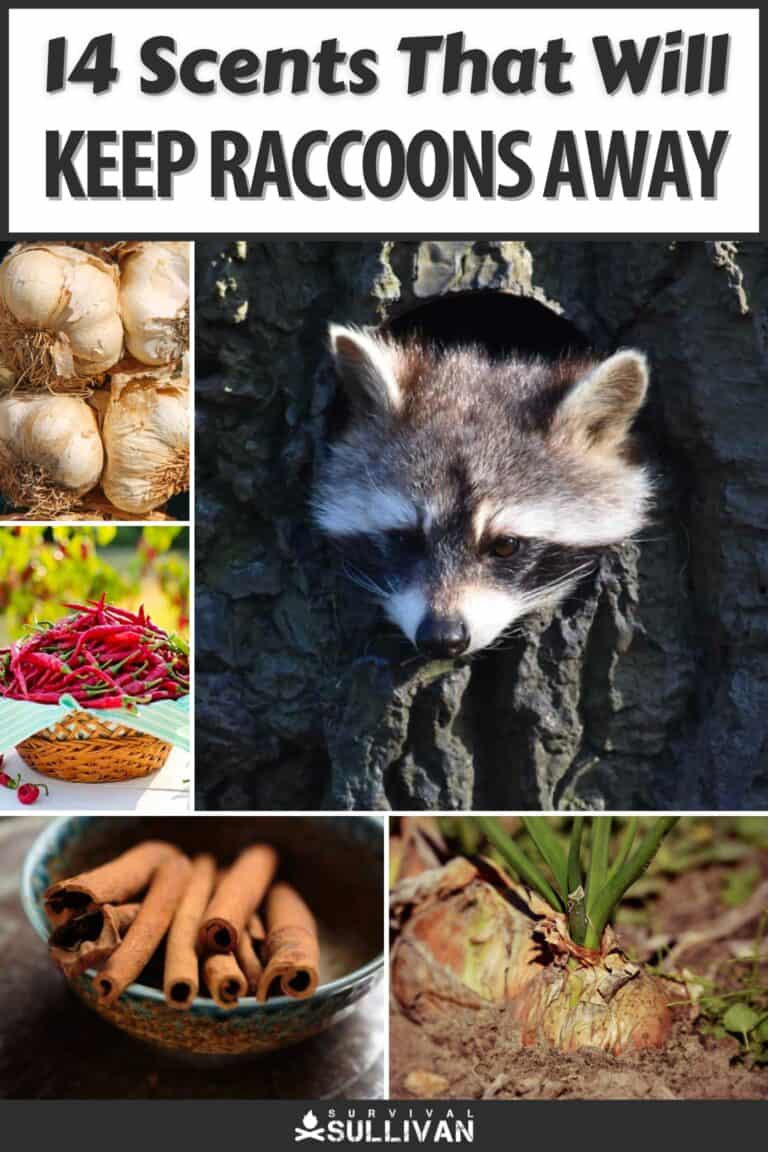
The post 14 Scents That Will Keep Raccoons Away appeared first on Survival Sullivan.
By: Tom Marlowe
Title: 14 Scents That Will Keep Raccoons Away
Sourced From: www.survivalsullivan.com/raccoon-repellent-scents/
Published Date: Wed, 23 Nov 2022 16:00:00 +0000
-------------------------------------------------------------------------
Did you miss our previous article...
https://outdoorsnewswire.com/survivalist/pocket-preps-tourniquet-buyers-guide
 CampingSurvivalistHuntingFishingExploringHikingPrivacy PolicyTerms And Conditions
CampingSurvivalistHuntingFishingExploringHikingPrivacy PolicyTerms And Conditions
